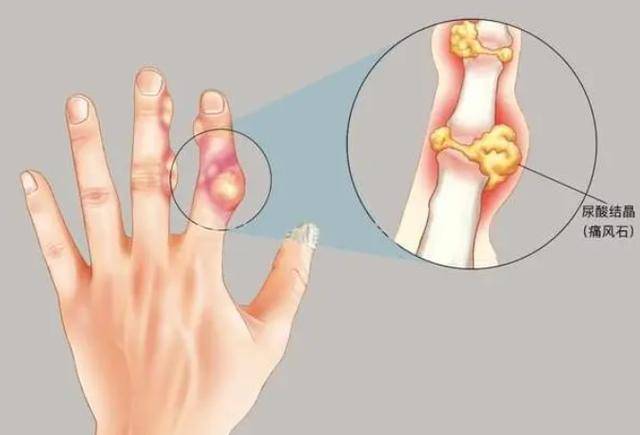Uric acid is an important substance in the human body’s metabolic process, mainly derived from the metabolism of purines. However, when the uric acid level exceeds the normal range, it can lead to a series of health problems, known as hyperuricemia.
Hyperuricemia may not only lead to gout but also trigger kidney diseases, cardiovascular diseases, and more. Therefore, understanding and controlling the level of uric acid is crucial for our health.
In daily life, some people believe that onions can increase the uric acid levels in the body, leading to hyperuricemia. But is this really true? This article will uncover the truth about the relationship between onions and high uric acid.
01
Are onions the “catalyst” for high uric acid?
There is actually no conclusive scientific evidence regarding the connection between onions and high uric acid. High uric acid is mainly caused by abnormal purine metabolism in the body or reduced excretion of uric acid by the kidneys, and it is not directly related to onions.
Certainly, onions contain some purines, but compared to other high-purine foods like meat and seafood, the content is negligible.
Furthermore, onions themselves have rich nutritional value, including various benefits such as antioxidant, anti-inflammatory, and blood sugar-lowering effects. Moderate onion consumption not only does not lead to high uric acid but also helps maintain overall health.
Therefore, calling onions the “catalyst” for high uric acid is clearly a misconception. On the path to a healthy diet, we should rationally consider various foods, combine them scientifically, to truly achieve nutritional balance and maintain good health.
02
Doctor’s reminder: To lower uric acid levels, reduce consumption of these 4 items
1. Legumes: Legumes like soybeans, black beans, tofu, etc., are rich in plant protein and minerals, but they contain purine substances that can generate uric acid after metabolism in the body.
For individuals with already high uric acid levels, excessive intake of legumes may increase the burden of uric acid and hinder its reduction.
2. Animal viscera: Animal viscera such as chicken liver, pig liver, beef liver, etc., contain high purine substances, which, when consumed, can also increase the production of uric acid in the body.
Moreover, the cholesterol content in animal viscera is high, excessive intake may increase blood viscosity, affecting blood circulation and uric acid excretion.
3. Seafood: Seafood such as salmon, sardines, mackerel, etc., also contain high purine substances, excessive consumption can increase the production of uric acid in the body. For those already trending towards gout, consuming a large amount of seafood may elevate the risk of gout attacks.
4. Alcohol-containing foods: Alcohol, when metabolized in the body, produces lactic acid, which inhibits the excretion of uric acid, leading to an increase in uric acid levels in the body. Therefore, for those needing to lower uric acid, it is advisable to avoid alcohol-containing foods and beverages as much as possible.
03
To prevent high uric acid, focus on these “4 key points”
1. Drink more water: Many people with high uric acid levels suffer from insufficient water intake. Increasing water consumption effectively dilutes uric acid and promotes its excretion.
It is recommended to ensure a daily water intake of 1500-1700 milliliters, which should be increased to over 2000 milliliters for individuals in hot weather or those with already high uric acid levels. Warm plain water is a better choice, with a consumption of about 200 milliliters per serving.
2. Reduce high-purine foods intake: Consuming high-purine foods increases the uric acid levels in the body. Therefore, to prevent high uric acid, reduce the intake of high-purine foods such as seafood, fatty meats, meat broths, legume products, etc.
Especially seafood like fish, shrimp, scallops, and animal organs, hotpot items, etc., these foods have higher purine content.
3. Avoid alcohol consumption: Alcohol intake inhibits uric acid excretion, leading to uric acid accumulation in the body. To prevent high uric acid, strict abstinence from alcohol is necessary, especially beer, which is also a high-purine food.
4. Maintain a regular daily routine, balance work and rest: Regular routines and adequate rest play an important role in preventing high uric acid. Overwork and excessive stress can affect the body’s metabolism and uric acid excretion, increasing the risk of hyperuricemia.


